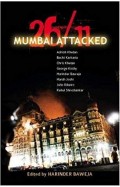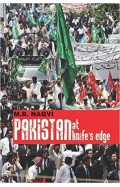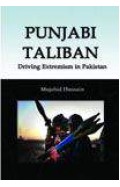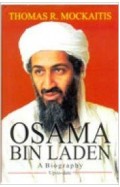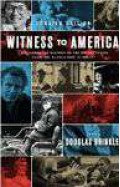The Audacious Ascetic
By: Flagg Miller
-
Rs 2,335.50
- Rs 5,190.00
- 55%
You save Rs 2,854.50.
Due to constant currency fluctuation, prices are subject to change with or without notice.
We are offering a high discount due to slightly damage.
In late 2002, over 1500 audiotapes were discovered in Kandahar, Afghanistan, in a house once occupied by Osama bin Laden. The Audacious Ascetic is the first book to explore this extraordinary archive. It details how Islamic cultural, legal, theological and linguistic vocabularies shaped militants' understandings of al-Qa'ida, and, more controversially, challenges the notion that the group's original adversary was America and the 'far enemy'. Miller argues that Western security agencies' 'management' of Bin Laden's growing reputation went awry. When magnified through global media coverage, narratives of al-Qa'ida's coherence were exploited by Osama and his militant supporters for their own ends. Focusing on over a dozen previously unpublished speeches by Bin Laden as well as on discussions by top al-Qa'ida leaders and Arab- Afghans, Miller chronicles the Saudi radical's evolving relationship with a host of Muslim insurgencies that found his stripe of asceticism (zuhd) tactically useful, especially when circulated via audiotape. These recordings also reveal militants' disenchantment when Bin Laden, marginalised through the '90s, began pandering to Western television networks in his attempt to direct heterodox Islamist armed struggles against America. Such audio evidence exposes al-Qa'ida's lack of coordination before 9-11 and invites scrutiny of dominant narratives of Western law enforcement, intelligence and terrorism analysts.
We are offering a high discount due to slightly damage.
In late 2002, over 1500 audiotapes were discovered in Kandahar, Afghanistan, in a house once occupied by Osama bin Laden. The Audacious Ascetic is the first book to explore this extraordinary archive. It details how Islamic cultural, legal, theological and linguistic vocabularies shaped militants' understandings of al-Qa'ida, and, more controversially, challenges the notion that the group's original adversary was America and the 'far enemy'. Miller argues that Western security agencies' 'management' of Bin Laden's growing reputation went awry. When magnified through global media coverage, narratives of al-Qa'ida's coherence were exploited by Osama and his militant supporters for their own ends. Focusing on over a dozen previously unpublished speeches by Bin Laden as well as on discussions by top al-Qa'ida leaders and Arab- Afghans, Miller chronicles the Saudi radical's evolving relationship with a host of Muslim insurgencies that found his stripe of asceticism (zuhd) tactically useful, especially when circulated via audiotape. These recordings also reveal militants' disenchantment when Bin Laden, marginalised through the '90s, began pandering to Western television networks in his attempt to direct heterodox Islamist armed struggles against America. Such audio evidence exposes al-Qa'ida's lack of coordination before 9-11 and invites scrutiny of dominant narratives of Western law enforcement, intelligence and terrorism analysts.
Zubin Mehta: A Musical Journey (An Authorized Biography)
By: VOID - Bakhtiar K. Dadabhoy
Rs 472.50 Rs 1,050.00 Ex Tax :Rs 472.50
Myths Illusions and Peace: Finding a New Direction for America in the Middle East
By: Dennis Ross
Rs 985.50 Rs 1,095.00 Ex Tax :Rs 985.50
Operation Dark Heart: Spycraft And Special Ops On The Frontlines Of Afghanistan And The Path To Victory
By: Anthony Shaffer
Rs 2,025.00 Rs 2,250.00 Ex Tax :Rs 2,025.00
Anna Hazare: The Face Of Indias Fight Against Corruption
By: Pradeep Thakur
Rs 225.00 Rs 300.00 Ex Tax :Rs 225.00
How To Win A Cosmic War God Globalization And The End Of War
By: Reza Aslan
Rs 625.50 Rs 695.00 Ex Tax :Rs 625.50
Witness To America: A Documentary History Of The United States From The Revolution To Today
By: Douglas Brinkley
Rs 4,495.50 Rs 4,995.00 Ex Tax :Rs 4,495.50
No similar books from this author available at the moment.
No recently viewed books available at the moment.
Zubin Mehta: A Musical Journey (An Authorized Biography)
By: VOID - Bakhtiar K. Dadabhoy
Rs 472.50 Rs 1,050.00 Ex Tax :Rs 472.50













-120x187.jpg?q6)







